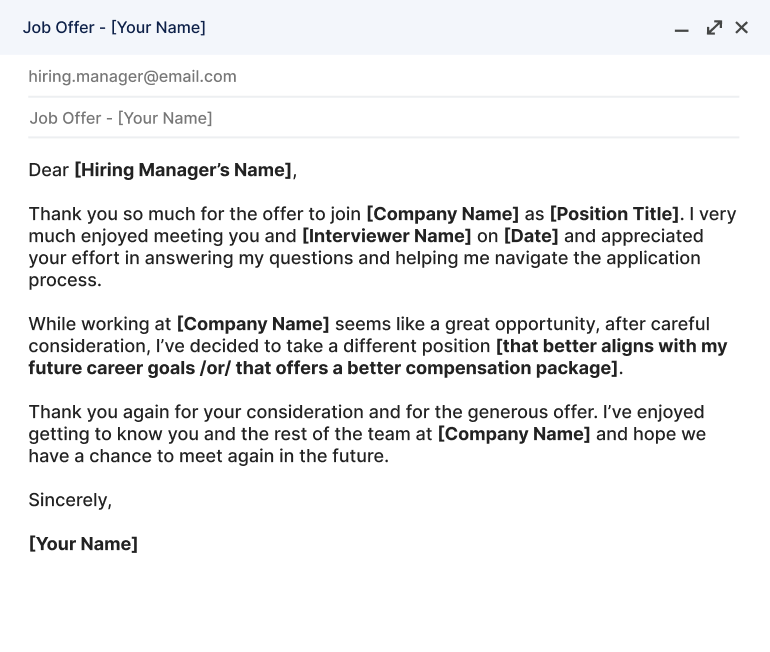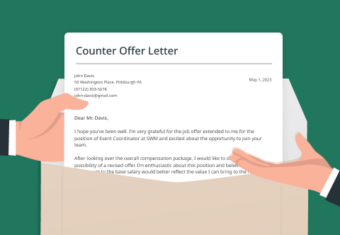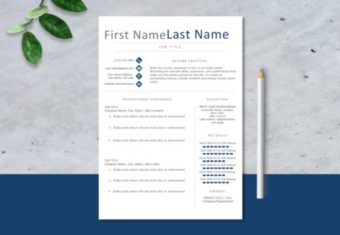If you find yourself needing to decline a job offer, it’s always best to be polite and appreciative so you don’t burn bridges with the employer.
Knowing how to respectfully decline a job offer helps you maintain a good relationship with the company in case you want to work with them at a later time or network with employees there.
Check out our examples and expert advice below to ensure you know the best way to decline a job offer graciously.
Sample emails for politely declining a job offer
There are different reasons why you might have to decline a job offer. Below are examples demonstrating how to properly decline a job offer in two common situations:
How to decline a job offer because you accepted a different position
If you’ve accepted a job offer at another company, it’s good practice to let the hiring manager know and thank them for the chance to interview.
Here’s an example of the right way to decline a job offer for a different position:
How to decline a job offer for personal reasons
Sometimes plans change and you’re no longer in a position to accept a job offer due to personal reasons. In these cases, it’s best to keep your explanation short and to the point, like in the example below:
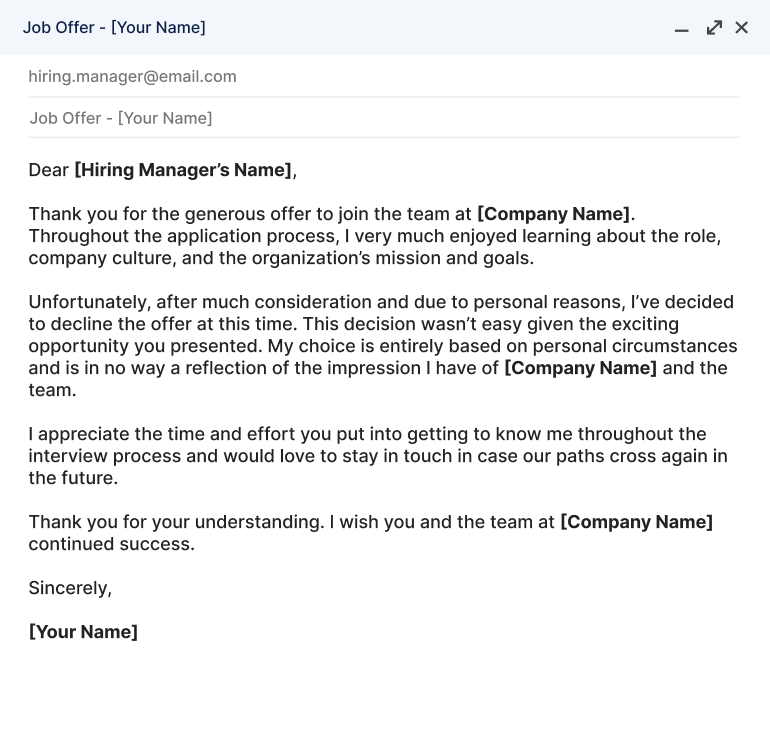
Offer rejection email template
To help you get started, here’s a job offer rejection email template that you can copy and paste, then adjust to fit your situation and tone of voice:
Dear [Hiring Manager’s Name],
I hope things are going well for you and the team at [Company Name]. I very much enjoyed our conversation on [Interview Date] and have gained a deeper appreciation for the amazing work your team is doing.
Thank you so much for the time and effort you dedicated to the interview process and for considering me for this role.
Although it seems like an amazing opportunity, I’ve decided to pursue another opportunity at this time. This decision was challenging, especially given the positive environment at [Company Name].
I wish you and [Company Name] continued success, and would welcome an opportunity to connect with you again in the future.
Sincerely,
[Your Name]
Tips for how to professionally turn down a job offer
Here are a few steps to help you write the perfect email declining a job offer:
1. Don’t procrastinate
It’s important to respect the company’s time and inform them you’re not accepting the job offer as soon as possible.
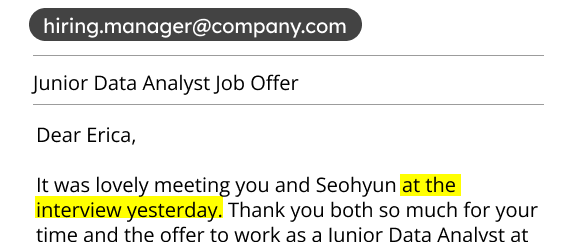
If you delay, you’re costing them unnecessary time and effort that they could spend moving forward with another applicant.
No matter the reason, you’ll likely upset the hiring manager if you wait until the last minute to inform them you’re declining. So while rejecting an offer can be stressful, it’s best to not procrastinate on sending your rejection letter or email (for your sake and theirs).
2. Tell them why you’re declining respectfully
After carefully selecting from a pool of applicants, the hiring manager offered you a position, so they’ll want to know why you’re declining.
You’ll need to be honest about why you’ve chosen not to join their company.

If you’re declining for personal issues (for example, tending to a sick relative), then you’re under no obligation to share that information. However, it’s best to give some details to avoid leaving a bad impression.
On the other hand, if you received another job offer that either pays more or is a better fit for you, it’s perfectly fair to share that with the hiring manager. No matter the reason you’re declining, the company will appreciate your honesty. Providing a reason you can’t accept the job is more professional than declining without one.
And, depending on how badly they want to hire you, the company may either increase their compensation package or offer you another role within the company.
If the reason you’re turning down the job is compensation-related, before you submit your rejection letter, write a counter offer letter and ask the employer to consider revising your compensation package.
3. Show your gratitude in your rejection letter
Just like if you were writing a job acceptance letter, you should show appreciation for the hiring manager when you decline a job offer.

The hiring manager likely spent hours reviewing your application, work history, references, and talking with colleagues about bringing you on the team. After all that, most candidates will be happy to have received an offer for the position.
You’ll need to convey that same gratitude in your rejection letter or email to avoid burning bridges when you turn the company down. Start your email or letter by thanking the team for their time and the job offer.
Consider also sharing what you learned in the interview process, which can help the hiring manager going forward by giving them an idea of how candidates perceive their company and employees.
Sharing your appreciation in your rejection letter shows the company that you took the job offer seriously even though you’re declining.
4. Keep the door open for future opportunities
It’s common to run into the same people if you’re working in a specific industry. For this reason, even if the company is not hiring you at this time, you’ll want to keep a connection open with them for future networking opportunities.
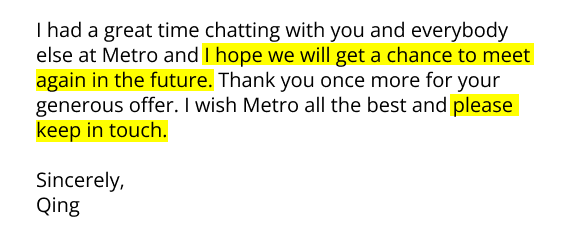
When declining the job offer, tell the company you’re looking forward to any possible future chances to work with them. Consider adding the interviewer on LinkedIn and restating that you liked the team and company culture.
Protecting future networking opportunities with a company is also important in case things don’t work out with the employer who is currently hiring you. It’s best to keep the company you’re declining as a backup for the future.
Click to rate this article
4.7 Average rating



